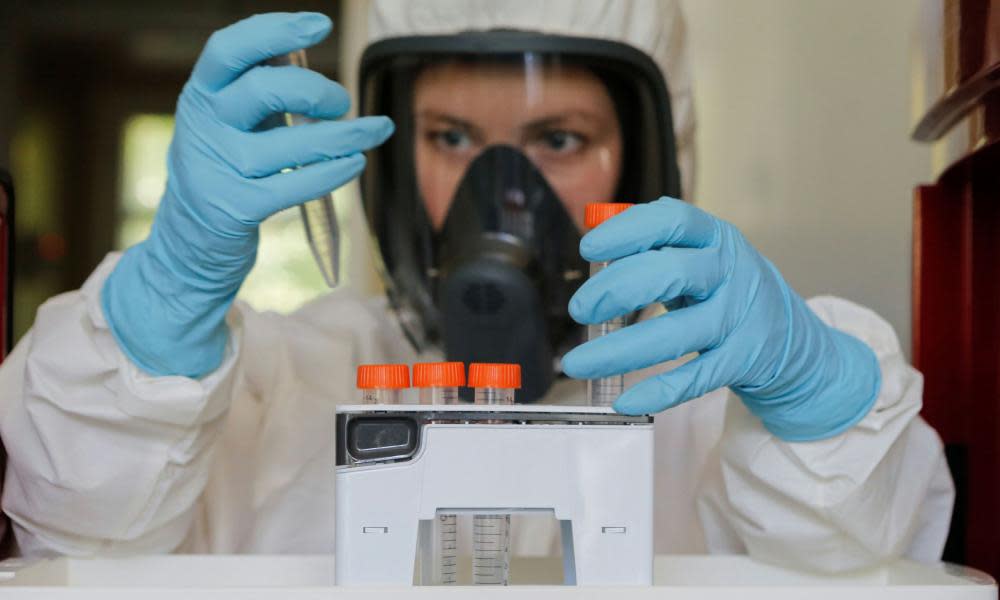Russia's coronavirus vaccine: will it work, and is it safe?

The race to find a vaccine against Covid-19 has not always been particularly edifying, driven at times by so-called “vaccine nationalism”, much cautioned against by the World Health Organization, which has itself been accused of being invested as much in self-interest and prestige as global public health.
Russia’s announcement that it has registered its Sputnik V vaccine as safe and effective for mass production and inoculation even before so-called phase 3 large-scale safety trials, which usually take months, fits the pattern.
Amid a desire across the globe to return to the pre-pandemic normal, any vaccine might seem like a light at the end of the tunnel. But is it?
The reality is that not all vaccines are the same in their effectiveness.
Some, like iterations of the seasonal flu vaccine, can be described as at best mediocre in terms of the amount of protection that they deliver, while even excellent vaccines – like that developed to protect against polio by Jonas Salk in the 1950s – took time to deliver population-wide immunity in the US.
And so far, despite the often anecdotal claims by Russian officials, the progress of the Russian vaccine – whatever its real promise eventually turns out to be – has been marked by worrying opacity and ethical issues.
As Russia’s Association of Clinical Trials Organizations put it in late May – after the head of the Gamaleya Institute said he and his colleagues had tried the vaccine on themselves – early testing was a “crude violation” of research norms by scientists under immense pressure to “please those [in] power”.
Tests on volunteers, including in the military, also raised ethical issues, including whether some had been pressurised to participate or felt pressured not to describe side effects, given the difference in responses given by those in the military and by civilians.
Now comes the problem of pushing ahead with mass production in the absence of completed phase 3 trials.
The point of phase 3 trials is to test both the effectiveness and efficacy of the vaccine in the widest possible sample and to assess risky side effects.
Most serious of all, perhaps, is that despite suggestions to the contrary, little is known about how useful this vaccine will be.
Russian officials have expressed a hope that the antibody response that it provokes might last up to two years, despite a lack of strong evidence to back that up. In fact, little is known about how long antibodies against coronavirus last in the body, what protection they confer, or for how long.
Nor is it clear how much protection it will give to the most vulnerable. There is a danger that a partially effective vaccine will give governments and populations a false sense of hope that the pandemic is nearly over, which could lead to hasty withdrawal of suppression measures.
On a more general note, as Michael Kinch, an expert in drug development, told the Washington Post last week, comparing the development of the first Covid-19 vaccines to early drugs for HIV: “We have to prepare ourselves for the idea we do not have a very good vaccine. My guess is the first generation of vaccines may be mediocre.”
Then there is the issue of getting it right in terms of safety.
Even the polio vaccine was not without safety issues, in a time long before the anti-vaxxer movement existed, not least the Cutter incident in 1955 when an improperly manufactured batch of the vaccine gave people polio instead of immunising them.
A bad vaccine, far from helping, might ultimately encourage higher rates of vaccine hesitancy among the public against later vaccines that are actually effective, suggests Matthew Schmidt, an expert on Russia at New Haven University.
“My fear is that Putin has just lowered the number of people willing to take any vaccine – even people here. Cheating on the scientific process hurts the perception of vaccine safety everywhere.
“The problem with any Russian vaccine is that the way it was tested undermines public faith in it. Even if it works it’s unlikely to be widely adopted in the rest of the world. The fears that it’s unsafe could even stoke the anti-vaccine movement and drive up the number of people who refuse to be inoculated because it will feed conspiracy theories, in the US and elsewhere.”

 Yahoo News
Yahoo News 
